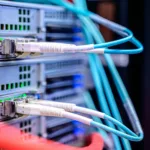
Artificial Intelligence (AI) is rapidly gaining popularity, reshaping industries and altering the way we live. From enhancing medical diagnostics to revolutionizing transportation, entertainment, education, and more, AI is at the forefront of transformative change.
Artificial Intelligence With Examples:
Impact on Medical Sciences
In the medical field, AI is not just a buzzword; it’s a game-changer. It has significantly impacted diagnostics and treatment suggestions. AI-powered apps, smartwatches, and health bands are now not only detecting diseases but also acting as virtual doctors. These applications monitor heartbeats, blood pressure levels, and symptoms, presenting a revolutionary shift in healthcare.
Transportation Evolution
AI is increasingly playing a crucial role in managing airways, optimizing flight routes, and improving weather forecasting. The reduction in human errors, especially in air travel, has been a significant boon. Additionally, AI’s integration with navigation apps like Google Maps is transforming daily commuting, providing real-time traffic updates and suggesting alternative routes.
Entertainment Industry’s AI Integration
In the realm of entertainment, AI has become an integral part. From virtual reality experiences to AI-based bots in gaming, the industry is leveraging AI to enhance user experiences. Games now feature AI-driven bots that seamlessly integrate with human players, blurring the lines between virtual and real opponents.
AI in Education
AI is reshaping the educational landscape, offering solutions from online classes and automated attendance tracking to personalized learning experiences. The introduction of AI-driven applications for paper checking and student notifications marks a significant shift in educational practices.
AI in Cyber Security and Military
The role of AI in ensuring national security is undeniable. The development of AI-based weapons and defense systems is reshaping military strategies. Automated weapons can think like humans, enhancing accuracy and response time. However, this advancement raises concerns about the potential for AI to replace human decision-making in critical situations.
Financial Revolution
The finance and banking sector has not been immune to the impact of AI. From online banking and automated notifications to advanced cybersecurity measures, AI is driving efficiency and improving data analysis for better financial decisions. Stock exchanges, currency conversions, and credit transfers are increasingly relying on AI algorithms.
In the above discussion, we discussed artificial intelligence with examples.
Challenges and Concerns in AI Implementation
Coding Complexity
The development of AI algorithms involves writing intricate code and managing complex issues. While automation offers opportunities, the resources to code all functions efficiently are limited.
Privacy Concerns
AI’s automated processes, while efficient, sometimes overlook human privacy concerns. Striking the right balance between automation and respecting privacy remains a challenge.
Unemployment Threat
The rise of AI raises concerns about job displacement. While AI improves the quality of work, there’s a looming threat of increased unemployment as machines replace human roles.
Conclusion
As AI continues to shape various industries, it brings transformative changes alongside challenges. The future promises further integration of AI into our daily lives, posing both opportunities and considerations for how we navigate this technological landscape.





















